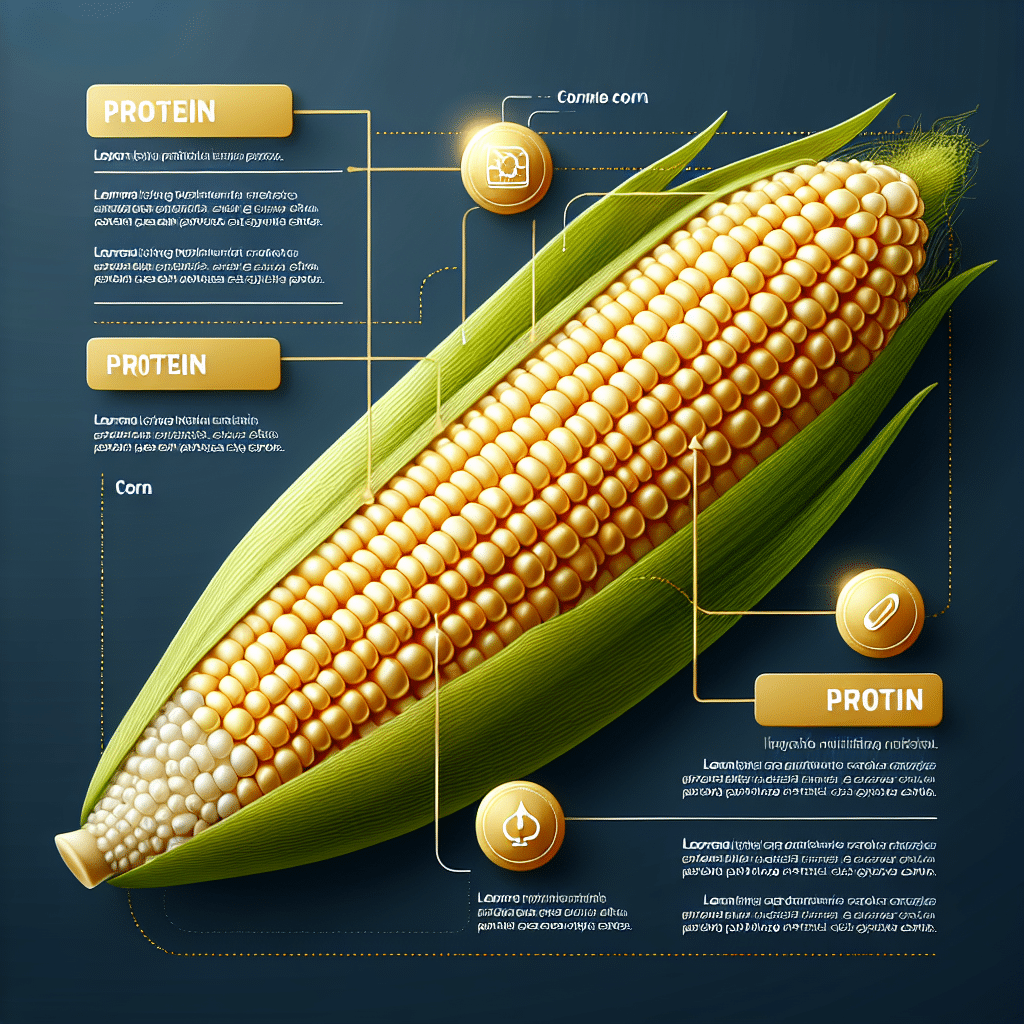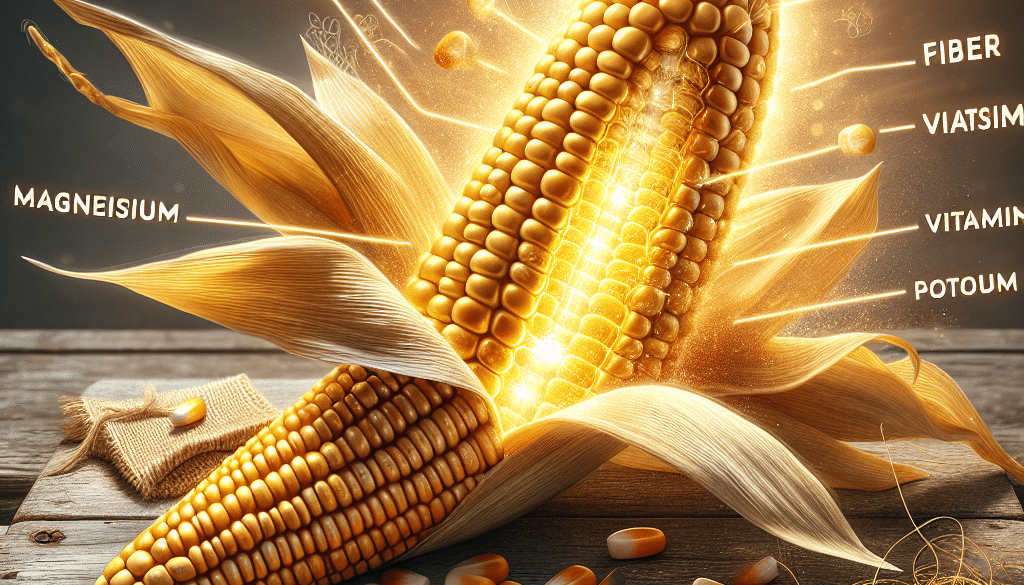Is Corn A Good Source Of Protein?
-
Table of Contents
- Is Corn a Good Source of Protein? Unveiling the Nutritional Profile
- The Nutritional Composition of Corn
- Protein Content in Corn
- Quality of Protein in Corn
- Comparing Corn to Other Protein Sources
- Integrating Corn into a Protein-Rich Diet
- Health Benefits and Considerations of Corn
- Conclusion: Corn’s Place in Your Diet
- Discover ETprotein’s High-Quality Protein Products
Is Corn a Good Source of Protein? Unveiling the Nutritional Profile

When it comes to protein sources, the usual suspects include meats, dairy products, nuts, and legumes. However, the role of vegetables and grains is often overlooked in the protein conversation. Corn, a staple food in many parts of the world, is frequently on the table, but is it a good source of protein? This article delves into the nutritional content of corn and assesses its protein quality compared to other sources.
The Nutritional Composition of Corn
Corn, also known as maize, is not just a popular side dish at barbecues but a fundamental grain that has been cultivated for thousands of years. It’s a versatile crop that comes in various forms, including sweet corn, field corn, and popcorn. Each type has its unique nutritional profile, but generally, corn is known for its carbohydrate content. However, it also contains proteins, vitamins, minerals, and dietary fiber.
Protein Content in Corn
Protein is an essential macronutrient necessary for building and repairing tissues, making enzymes and hormones, and supporting immune function. But how does corn measure up as a protein source?
- A typical serving of sweet corn (about 100 grams) contains approximately 3.3 grams of protein.
- Field corn, which is often dried and milled, has a slightly higher protein content, with about 9 grams of protein per 100 grams when dried.
- Popcorn, a whole grain, has about 12 grams of protein per 100 grams when air-popped.
While these numbers show that corn does contain protein, it’s important to note that corn is not considered a high-protein food when compared to other sources like meats, dairy, or legumes.
Quality of Protein in Corn
The quality of protein is determined by its amino acid composition and digestibility. Proteins are made up of amino acids, some of which are essential because the body cannot produce them and must obtain them from food.
Corn protein is considered incomplete because it lacks adequate amounts of some essential amino acids, particularly lysine and tryptophan. This means that while corn can contribute to your daily protein intake, it should not be relied upon as the sole source of protein.
Comparing Corn to Other Protein Sources
To put corn’s protein content into perspective, let’s compare it to other common protein sources:
- Chicken breast: Approximately 31 grams of protein per 100 grams
- Lentils: About 9 grams of protein per 100 grams (cooked)
- Quinoa: Around 4 grams of protein per 100 grams (cooked)
- Almonds: Nearly 21 grams of protein per 100 grams
These comparisons show that while corn does provide protein, there are many other more concentrated sources available.
Integrating Corn into a Protein-Rich Diet
Despite its lower protein content, corn can still play a role in a balanced, protein-rich diet. The key is to combine it with other protein sources, especially if you follow a vegetarian or vegan diet. Here are some ways to enhance the protein content of meals that include corn:
- Pair corn with beans or legumes, which contain the lysine that corn lacks.
- Add cheese or Greek yogurt to a corn dish for an extra protein boost.
- Include nuts or seeds in corn-based salads or salsas.
- Use corn as a side dish alongside a main protein source like fish, chicken, or tofu.
Health Benefits and Considerations of Corn
Beyond protein, corn offers other nutritional benefits. It’s a good source of fiber, which aids in digestion and can help lower cholesterol levels. Corn also contains vitamins and minerals such as vitamin C, magnesium, and B vitamins.
However, it’s important to consider the form in which you consume corn. Processed corn products, like high-fructose corn syrup or corn oil, do not offer the same health benefits as whole corn and can be detrimental to your health when consumed in excess.
Conclusion: Corn’s Place in Your Diet
Corn is a nutritious grain that can contribute to your daily protein intake, but it should not be the primary source of protein in your diet. Its incomplete protein can be complemented by other foods to ensure a well-rounded intake of essential amino acids. Corn’s additional health benefits make it a valuable part of a balanced diet when consumed in its whole form.
Discover ETprotein’s High-Quality Protein Products
If you’re looking to supplement your diet with additional protein sources, consider exploring ETprotein’s range of organic bulk vegan proteins. Their products, including rice protein, pea protein, and various seed proteins, offer high-quality, allergen-free options to enhance your nutritional intake.
ETprotein’s offerings are ideal for those seeking plant-based protein alternatives that are non-GMO and have a neutral taste. Whether you’re involved in sports nutrition, weight management, or general health and wellness, ETprotein has a protein solution to meet your needs.
About ETprotein:
ETprotein, a reputable protein and L-(+)-Ergothioneine (EGT) Chinese factory manufacturer and supplier, is renowned for producing, stocking, exporting, and delivering the highest quality organic bulk vegan proteins and L-(+)-Ergothioneine. They include Organic rice protein, clear rice protein, pea protein, clear pea protein, watermelon seed protein, pumpkin seed protein, sunflower seed protein, mung bean protein, peanut protein, and L-(+)-Ergothioneine EGT Pharmaceutical grade, L-(+)-Ergothioneine EGT food grade, L-(+)-Ergothioneine EGT cosmetic grade, L-(+)-Ergothioneine EGT reference grade and L-(+)-Ergothioneine EGT standard. Their offerings, characterized by a neutral taste, non-GMO, allergen-free attributes, with L-(+)-Ergothioneine purity over 98%, 99%, cater to a diverse range of industries. They serve nutraceutical, pharmaceutical, cosmeceutical, veterinary, as well as food and beverage finished product distributors, traders, and manufacturers across Europe, USA, Canada, Australia, Thailand, Japan, Korea, Brazil, and Chile, among others.
ETprotein specialization includes exporting and delivering tailor-made protein powder and finished nutritional supplements. Their extensive product range covers sectors like Food and Beverage, Sports Nutrition, Weight Management, Dietary Supplements, Health and Wellness Products, and Infant Formula, ensuring comprehensive solutions to meet all your protein needs.
As a trusted company by leading global food and beverage brands and Fortune 500 companies, ETprotein reinforces China’s reputation in the global arena. For more information or to sample their products, please contact them and email sales(at)ETprotein.com today.














